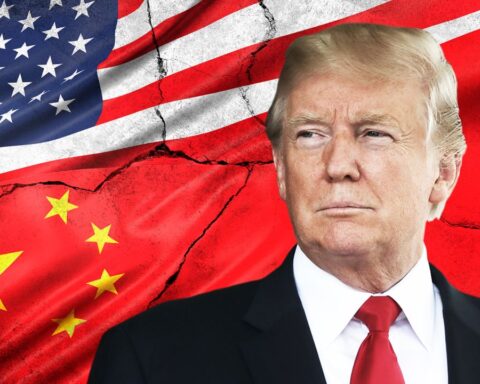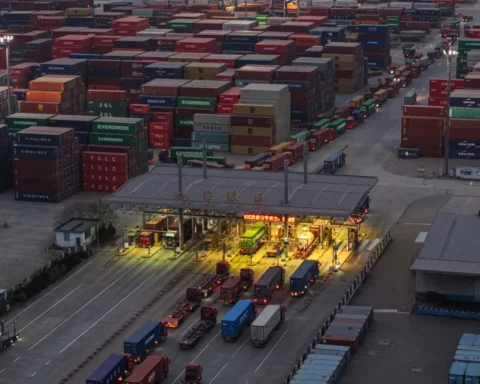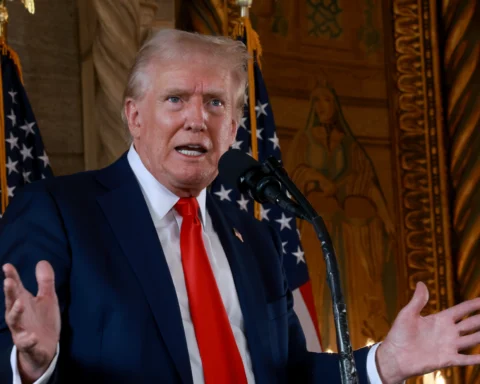Cryptocurrency prices tumbled on September 25 after China’s central bank declared all transactions involving Bitcoin and other virtual currencies illegal.
The global cryptocurrency market cap is $1.91 trillion, a 4.23 percent decrease over the last day. The total crypto market volume over the last 24 hours is $134.58B, which makes a 34.00 percent increase, as per Coin Market Cap.
Bitcoin’s price is currently Rs 33,46,436 and its dominance is currently 42.04 percent, a decrease of 0.08 percent over the day.
The price of Bitcoin fell over 4 percent, in the hours after China’s Central Bank’s announcement, as did most other crypto tokens.
Bank notice complained Bitcoin, Ethereum and other digital currencies disrupt the financial system and are used in money-laundering and other crimes.
“Virtual currency derivative transactions are all illegal financial activities and are strictly prohibited,” the People’s Bank of China said on its website.
The People’s Bank of China is developing an electronic version of the country’s yuan for cashless transactions that can be tracked and controlled by Beijing.
Chinese banks were banned from handling cryptocurrencies in 2013, but the government issued a reminder this year. That reflected official concern cryptocurrency mining and trading might still be going on or the state-run financial system might be indirectly exposed to risks.
Promoters of cryptocurrencies say they allow anonymity and flexibility, but Chinese regulators worry they might weaken the ruling Communist Party’s control over the financial system and say they might help to conceal criminal activity.As of 7.40 am on September 25, these are the prices of the largest cryptocurrencies (data from WazirX):
| NAME | PRICE (INR) | 24H % |
| Bitcoin | 33,46,436 | -3.68% |
| Ethereum | 2,29,800 | -5.72% |
| Tether | 78.9 | -0.6 |
| Cardano | 179.4997 | -0.55% |
| Binance Coin | 28,133.8 | -5.23% |
| XRP | 74.3532 | -4.06% |
| Polkadot | 2,489.96 | -1.4% |
BITCOIN FUTURES DAILY: Bitcoin is down on today’s news. Breaking below $40,000 would imply a secondary top at $53,125 and promote more sideways consolidation. Ultimately, a breakdown below $28,000 is needed to confirm a crypto bear market. Until then, prices are merely consolidating.

Note: To signal a flash crash, bitcoin would have to drop below $28,000.
Deleveraging: The Chinese economy is highly leveraged. Many of its citizens have their wealth wrapped up in real estate. The situation with Evergrande is horrible and could lead to massive losses. If a deleveraging begins, the government may have to step in to cover losses and maintain order. If they fail to respond appropriately, we could see a sharp selloff in most assets, especially in overleveraged crypto.
Potential Flash Crash: One scenario I’m considering is a potential liquidity shock and flash crash in crypto exchanges. Let me explain; if we see a panic deleveraging (now or later), liquidity could dry up along with buy orders. If buy orders dry up while investors are still rushing to the exits – crypto prices could plummet, temporarily. How low could they go? I have no idea, but theoretically, some could drop to the lowest buy order on the books. A flash crash would likely last just a few seconds before exchanges shutter.
The flash crash described above is unlikely but certainly possible given today’s fast-moving markets. If a flash crash occurs, it’s most likely to happen over the weekend (when traditional banks and funding sources are closed). Think about it: low weekend trading volume combined with a deleveraging event could trigger margin calls at a time when traders that are leveraged to the max can’t assess additional funds. That could result in forced selling.
Final thoughts, if crypto transactions are illegal in China, and there is a rush to liquidity – investors may switch back to gold to protect purchasing power. If that occurs, precious metals could see a nice boost.
AG Thorson is a registered CMT and expert in technical analysis. He believes we are in the final stages of a global debt super-cycle. For regular updates, please visit here.






